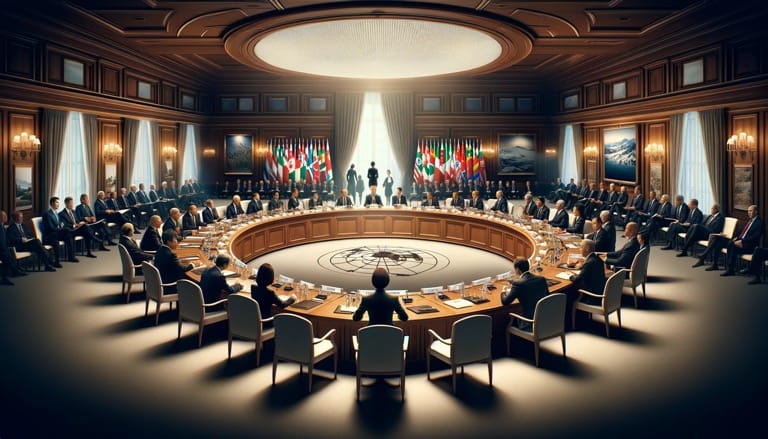Davos 2024: Beyond the Grand Table - Assessing the Tangible Outcomes
The recently concluded Davos meeting, a gathering renowned for its high-profile discussions on global issues, raised questions about the effectiveness and real-world impact of such forums, particularly in the absence of key players like China and Russia. This year's event, while packed with influential leaders and decision-makers, has

The recently concluded Davos meeting, a gathering renowned for its high-profile discussions on global issues, raised questions about the effectiveness and real-world impact of such forums, particularly in the absence of key players like China and Russia. This year's event, while packed with influential leaders and decision-makers, has left many pondering whether tangible outcomes were achieved or if it was merely a display of diplomatic pageantry.
The central focus of Davos 2024 was the ongoing conflict in Ukraine, with efforts directed towards rallying support for Ukraine’s peace plan. Despite the broad participation, including representatives from countries in the Global South, the talks ended without significant progress. The absence of Russia from the discussions rendered the peace talks less effective, as Moscow is a critical player in the conflict.
The forum also highlighted the growing influence of the Global South in global geopolitics, a positive development in terms of diverse representation. However, without the participation of China and Russia, the discussions lacked the comprehensive engagement necessary to address key international conflicts effectively.
In the end, the Davos 2024 meeting showcased the complexities of international diplomacy and the challenges of achieving substantial progress insuch forums. While it provided a platform for leaders to discuss pressing issues and potential solutions, the lack of concrete agreements or breakthroughs underscores the limitations of such gatherings. The absence of key stakeholders like China and Russia further diminished the potential for actionable outcomes, leaving the world to wonder if the meeting was more about symbolism than substance.
As the international community continues to grapple with conflicts and crises, the Davos meeting serves as a reminder of the need for inclusive dialogue and the involvement of all relevant parties. Only through comprehensive and collaborative efforts can the world hope to address the challenges it faces and move towards a more peaceful and prosperous future.




